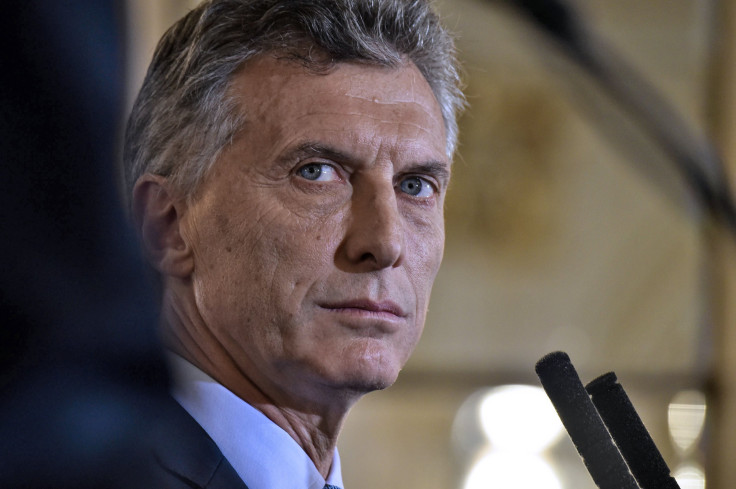Argentina Poised For Return To Global Debt Markets After 15-Year Battle With US Hedge Funds

Six weeks after Argentina agreed to settle a 15-year debt battle with top-shelf U.S. hedge funds, the country is poised to return to the global bond market to raise much-needed capital to stimulate economic growth.
The South American nation will offer bonds in the U.S. and Britain for the first time since 2001, when it defaulted on $80 billion in debt, the Wall Street Journal reported Thursday. Argentina has been planning to issue $12.5 billion in sovereign five-, 10- and 30-year bonds, but has yet to announce when they would be issued and what the terms would be.
A Financial Times poll of sovereign debt investors released Tuesday suggests an average 8 percent yield on the debt would be considered “fair” for a country that has defaulted numerous times on its debts.
“Pricing will be key,” Alfredo Mordeski, head of fixed income at Santander Asset Management, told the FT. “There will certainly be a market-clearing level that will trigger demand.” That demand could be triggered at between 7.5 percent and 9 percent returns, according to poll respondents.
Holding Argentina away from access to foreign investment has been a long-running dispute with major U.S. hedge funds. These investors are commonly called “vulture” funds in Latin America for their propensity to buy distressed debt and then use courts to sue for compensation. (In 2012, a subsidiary of New York-based Elliot Management famously obtained a court order to seize an Argentine warship that had docked in Ghana.)

But after more than a decade, Argentina agreed in late February to pay out $4.65 billion to settle a dispute with Elliott Management, Aurelius Capital Management, Davidson Kempner, and Bracebridge Capital, representing 75 percent of the funds’ claims (including interest), opening the way for the country return to the global sovereign bond market. Last month the Argentine Congress approved the measure.
"While Argentina can now return to the markets, the settlement validates a predatory and exploitative business model,” said Eric LeCompte, head of the faith-based nonprofit Jubilee USA, a critic of what it considers predatory lending in the global sovereign debt markets. "The parity rulings which favored these funds are still intact, and we remain concerned how those rulings will impact some of the world's poorest countries."
The deal to settle with the hedge funds was made under President Mauricio Macri, a pro-business conservative who took office in December. He succeeded President Cristina Fernández de Kirchner, who strongly opposed settling with the U.S. bondholders.
Argentina has been shut out of access to foreign capital for years, and will have to offer high yields to attract buyers. But investor sentiment rose after Macri was elected and immediately implemented a series of reforms. In his first week in office Macri curbed export taxes and allowed the Argentine peso to lose almost a third of its value against the dollar. Macri has also filled his Cabinet with former bankers and other corporate executives.
“There will never be a more market-friendly government than this one,” Alejandro Rebossio, the author of two books on Argentina’s economy, told the New Yorker in December.
Still, Argentina has a long way to go to dig out of its hole. Real GDP (adjusted for inflation) is forecast to contract 1.5 percent this year, according to the International Monetary Fund. The country’s alarmingly high inflation is expected to start moderating, dropping to 30 percent from 35 percent.
“A reform-friendly government has raised growth prospects over the medium term,” said a note from U.K.-based Capital Economics. “But putting the economy on an even keel will entail short-term pain.”
© Copyright IBTimes 2024. All rights reserved.





















